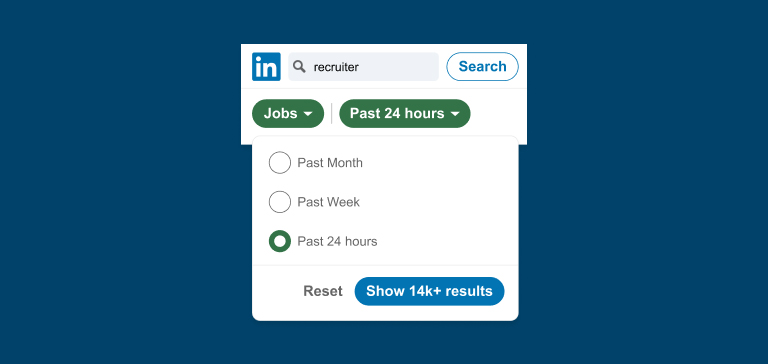Are recruiters marketers?
Short answer: no.
They have explicitly different tasks and objectives. Recruiters recruit; marketers sell.
But are recruiters marketers?
Short answer: yes.
They essentially do the same thing.
Okay, so how can both be true? And does it even matter?
It absolutely does. Because how you view recruiters determines what you ask them to do on a day-to-day basis (hint: it shouldn’t be hours and hours of tedious admin work). We’ll get back to that later.
But first, grab some popcorn and get ready — because we’re about to talk about everyone’s favorite subject: English connotations.
So, what do recruiters do?
Let me double check something — yep, recruiter and marketer are definitely different words. Now, I’m not going to go all “English paper” on you and start talking about dictionary definitions, but I think we can agree that the two roles are, on paper, different things.
But that doesn’t mean they don’t share a ton of DNA. Just ask someone that does both. Courtney Holley, a talent marketing specialist at Paradox, works on the recruiting team (we technically call it the talent team, but that’s a small semantic distinction) but literally has “marketing specialist” in her title. So if she’s not qualified to answer this question, I don’t think anyone is.
“Just like a dedicated marketing team, recruiters are responsible for engaging audiences, shaping a brand, and crafting messages that draw attention to an organization,” Courtney told me.
Both marketers and recruiters are tasked with building trust with their audience in an attempt to convince them that they want — no, need — something. It’s just that their ultimate goals are different. At an absolutely subatomic level, think of it like this:
- Recruiters sell a company.
- Marketers sell a product.
There’s more nuance involved, of course. Really, they’re attempting to ingratiate the company’s employee value proposition to candidates. That’s the core distinction between a recruiter and marketer. They’re not simply selling toilet paper, or a vacuum cleaner, or the new Keto cereal that’s going to change your morning routine forever. They’re selling candidates on a culture. A lifestyle. What will your life be like when you work here?
“You have to be really creative, because a lot of what you’re marketing is intangible,” said Erin Redfield, a sr. TA specialist at Paradox.
That’s no easy feat, especially when candidates have over a dozen other valentines trying to win their hearts. Which is why the great recruiters have become experts at tailoring their recruitment tactics to each individual candidate, positioning specific roles to make someone believe it’s the right fit for them. It’s hard work. And it takes time and effort to do.
Recruiters’ personal interaction with their target market is much more direct than that of many marketers. Talking face to face with candidates requires recruiters to not just know what they’re selling inside and out, but how to interact with other people as well. Plus, that direct interaction lends itself to non-marketing activities as well. Conducting interviews, determining qualifications, and managing relationships are all tasks that recruiters handle, yet wouldn't necessarily be the first thing you think of when you think about marketing.
The picture I’m trying to paint here is that recruiters kind of have a lot on their plates. Which isn’t automatically a bad thing. It just means that they don’t have time to really be doing low-value activities. Which is where we reach the problem.
If recruiters aren’t marketing your company, it’s because they don’t have enough time.
Sadly, the purpose of the “recruiter” has become corrupted.
The “what” has become more important than the “how.” Many recruiters largely serve a transactional role and are tasked with all the tedium that goes into hiring a new employee and none of the relationship building; the “marketing” part has been thrown out the window. And we’ve seen this have a seismic impact on the actual tasks that recruiters handle, and the efficacy in their performance.
Scheduling interviews. Manually screening candidates. Sifting through onboarding paperwork. These are all things that get new employees in the door. So naturally, the recruiters should do it. In fact, for some global companies, recruiters spend over 8,000 hours a month just on scheduling interviews. After all, it is their job.
But is it actually? Because those activities don’t really have anything to do with building candidates’ trust and selling them on a company. Or in other words: recruiting. They’re kind of just things that have to get done, and recruiters are the people that usually have to end up doing them.
Here’s the thing: Modify your definitions, and your expectations change, too.
When a recruiter is just someone who gets new employees in the door, it’s easy to convince yourself that they should be scheduling interviews and should be screening for basic qualifications. But when you view the recruiter role through the implicit lens as a marketer selling your organization as a place of work — promoting a brand, a culture, a potential lifestyle — it now feels like a misuse of resources to have them primarily focus on administrative tasks.
Especially when those administrative tasks block them from performing value-adding activities like actually marketing to candidates. Communication between company and candidate is more important than ever. Aptitude Research discovered that something as simple as providing feedback after responses can make candidates 76% more loyal to a brand. Why are we robbing recruiters of their ability to make these connections?
If I can stand on my soapbox for just one second: We need to fundamentally change how we view recruiters. They don’t just “get people in the door”; their value comes from their ability to make a stranger believe that this is the place for me.

“Well someone has to schedule interviews!” the voice of doubt shouts in your head. Well you can silence that pesky voice — because it’s wrong.
With conversational AI automation, interview scheduling — as well as tons of other monotonous tasks — can be automated. Powered by a conversational AI assistant, candidates can be instantly screened for qualifications and prompted to schedule for interviews if they’re deemed qualified. This frees up recruiters to spend time with candidates, marketing to their heart’s content.
It’s a great pairing. AI is fantastic at those administrative tasks because it does the same thing with unfailing accuracy over and over again. But guess what, it doesn’t actually work at your company, so it can’t actually market the lived experience to candidates. Think about it this way: Recruiters can do the administrative tasks, but an AI absolutely cannot do the recruiting.
And building the most efficient recruiting team is all about maximizing the skills and time of your people first, and then letting AI automate the rest.
So … is a recruiter a marketer?
Yes.
And no.
And yes.
They have the same function, just different audiences and “products” they’re selling.
It’s time that your recruiters had the time to actually sell it.









